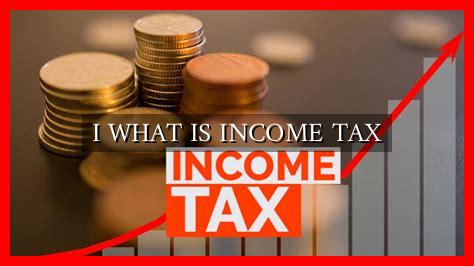-
Table of Contents
Understanding Income Tax: A Comprehensive Guide
Income tax is a crucial aspect of personal finance that affects individuals and businesses alike. It is a tax imposed by the government on the income generated by individuals and entities within its jurisdiction. In this article, we will delve into the intricacies of income tax, its importance, and how it impacts our financial well-being.
What is Income Tax?
Income tax is a direct tax levied on the income of individuals, corporations, and other entities by the government. The tax is calculated based on the income earned during a specific period, typically a fiscal year. The tax rates and brackets vary depending on the country and the income level of the taxpayer.
Types of Income Tax
- Personal Income Tax: This is the tax levied on the income of individuals, including wages, salaries, bonuses, and investment income.
- Corporate Income Tax: This tax is imposed on the profits earned by businesses and corporations.
- Capital Gains Tax: This tax is levied on the profits made from the sale of assets such as stocks, real estate, and other investments.
Importance of Income Tax
Income tax plays a vital role in funding government programs and services, such as education, healthcare, infrastructure, and national defense.
. It is the primary source of revenue for the government and helps in maintaining a functioning society.
Redistribution of Wealth
Income tax is also used as a tool for redistributing wealth and reducing income inequality. Progressive tax systems, where higher-income individuals are taxed at a higher rate, help in ensuring a more equitable distribution of resources.
How Income Tax is Calculated
The calculation of income tax involves determining the taxable income of an individual or entity and applying the relevant tax rates. Taxable income is calculated by subtracting deductions and exemptions from the total income earned.
Example:
Let’s say an individual earns a total income of $50,000 in a year and qualifies for $10,000 in deductions and exemptions. Their taxable income would be $40,000, and they would be taxed based on the tax rates applicable to that income bracket.
Case Study: Income Tax in the United States
In the United States, the federal income tax system is progressive, with tax rates ranging from 10% to 37% based on income levels. Additionally, there are state income taxes imposed by individual states, further adding to the tax burden of taxpayers.
Statistics:
- According to the Internal Revenue Service (IRS), the top 1% of income earners in the US paid an average federal income tax rate of 24.7% in 2018.
- The Tax Cuts and Jobs Act of 2017 reduced the corporate income tax rate from 35% to 21% in the US.
Conclusion
Income tax is a fundamental aspect of our financial system that helps in funding government operations and redistributing wealth. Understanding how income tax works and its implications is essential for making informed financial decisions. By being aware of the tax laws and regulations, individuals and businesses can optimize their tax liabilities and contribute to the overall well-being of society.
For more information on income tax, you can visit the Internal Revenue Service (IRS) website.


